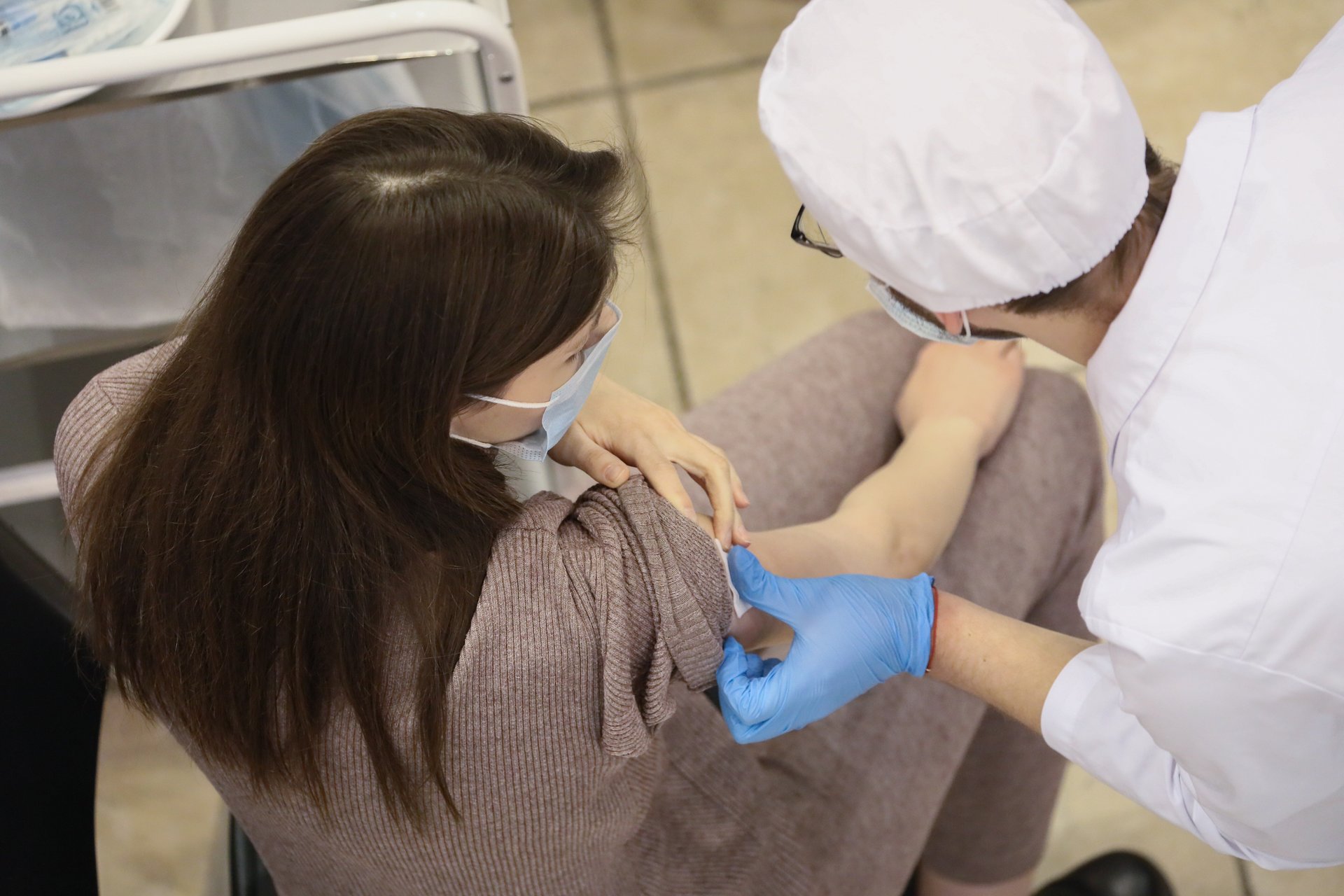Chief Scientist of the World Health Organization (WHO) Soumya Swaminathan said about the danger of the emergence of new variants of the coronavirus infection COVID-19 in the world.
“We have seen how the virus evolves and how it mutates… So we know there will be new variants of COVID-19, new variants that are worrisome.
We have not yet reached the end of the pandemic,” she said.
Virologist, doctor of medical sciences, professor Anatoly Altshtein, in a conversation with RT, urged not to exclude the possibility of the emergence of new variants of COVID-19, but recalled that people would definitely meet these options already prepared.
“Because the two-year experience of the epidemic shows that it was possible to make vaccines, it is possible to vaccinate a very large part of the population of the Earth, to develop anti-epidemic measures that show one degree or another of effectiveness, depending on how they are carried out, and we must have all this in mind when we think of new options,” he said.
“We must now vaccinate, try to eliminate this part of the pandemic, the micron one, and I think that if we vaccinate together and achieve 70-80% of the population of the Earth vaccinated, then we will be able to calmly meet any new options, and the epidemic will stop,” he explained. expert.
As a virologist, professor of the Department of Virology at the Faculty of Biology of Moscow State University, Alexei Agranovsky, explained in an interview with RT, the emergence of new strains, including potentially dangerous variants, is “quite likely”, but probability does not mean certainty.
“The virus mutates randomly when it replicates, and the more people carry the virus, the higher the chance of new strains emerging.
Evolution and selection are random, for example, strains of the virus may appear with milder symptoms and reduced sensitivity to antibodies against “old” strains, as happened with Omicron,” he said.
Agranovsky stressed that no new security measures should be taken in connection with new strains.
“It is more correct to act according to the situation, based on the properties of the strain.
For example, now in many countries restrictive measures are being canceled, because they are ineffective against a very contagious omicron.
Vaccination and revaccination are still relevant,” he concluded.
An immunologist, a specialist in especially dangerous infections, a virologist, Doctor of Medical Sciences Vladislav Zhemchugov, in an interview with RT, noted that COVID-19 mutations occur constantly, since the goal of the virus is "to multiply as much as possible and occupy new territory."
“Now the situation is unfavorable for the virus, because collective immunity on a planetary scale is reaching its maximum, which will slow down the process.
On the other hand, this immunity is a selection factor for new mutations that allow it to be evaded.
Omicron is a demonstration of this, ”the expert noted.
He admitted that the coronavirus could become a seasonal infection in the future, as well as find new hosts in nature, “where there is no herd immunity and multiply there.”
“The third option is a new virus that will not be sensitive to immunity.
If there is a new virus, then there will be another round of the pandemic,” he said.
AGN "Moscow"
© Sandurskaya Sofia
Recall that mass vaccination against coronavirus continues in Russia.
Russians can be vaccinated with one of the vaccines registered in the country: "Sputnik V" and "Sputnik Light" of the Center.
Gamaleya, "KoviVak" center.
Chumakov, "EpiVakKorona" and "EpiVakKorona-N" of the Novosibirsk center "Vector".
President Vladimir Putin spoke about the effectiveness of Russian drugs, in particular, the Sputnik V vaccine.
“Millions of people who have received vaccinations, and analysis of the information received after vaccinations, indicate that the Russian vaccine is certainly one of the most effective in terms of protection against COVID-19 and safe, meaning the practical absence of any consequences,” the President emphasized.
In turn, the Vector scientific center reported that clinical trials for the EpiVacCoron-N vaccine in people over 60 years of age will begin in February and will last 42 days.
The center clarified that the observation of volunteers will be carried out for six months after the administration of the drug.
The composition of the vaccine for the elderly will remain the same as for citizens from 18 to 60 years old.
“Research will begin on the basis of the medical unit 163 of the Federal Medical and Biological Agency (FMBA) in February this year.
300 volunteers will take part in them,” the center told the Interfax news agency.
Meanwhile, Speaker of the Federation Council Valentina Matvienko instructed the senators, together with the Ministry of Health, to work out the issue of psychiatric rehabilitation for those who have recovered from COVID-19.
“We must remember this and understand that psychiatric rehabilitation should be included in the CHI policy, as well as other types of post-COVID rehabilitation.
I support the proposal to instruct the committee on social policy, together with the Ministry of Health, to consider the inclusion of such assistance in compulsory medical insurance,” she said.
Matvienko stressed that the mental health of people is no less important than the physical.
Meanwhile, Deputy Director for Research at the Central Research Institute of Epidemiology of Rospotrebnadzor, Corresponding Member of the Russian Academy of Sciences Alexander Gorelov, meanwhile, said that coronavirus infection in pregnant women in about 20% of cases leads to mental and physical developmental delays in a child.
According to him, with COVID-19 during pregnancy, there is a violation of the placental circulation.
“As a result, less oxygen is supplied and there may be a delay in the rate of development.
The slowdown in the pace of development - both mental and physical - in such children is absolutely clearly visible in 20% of cases, ”TASS quotes him as saying.
According to WHO, the total number of recorded cases of coronavirus in the world has exceeded 402 million. In total, more than 5.7 million people have died in the world.

